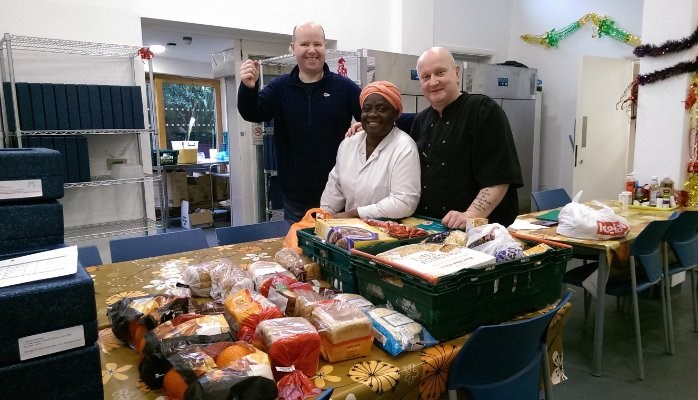This is an excellent response from signatories including Tesco, Unilever and Nestle - the sort of leadership we need to see in 2016. Because if “agreeing the SDG’s was the easy part”, how business and governments respond (and how quickly) is critical for our collective future.
The ‘how’ needs vision but it also needs to be addressed in a very practical sense. Top-down ambition is fantastic because it frees up corporate resources to explore new technology solutions like Olio, FoodCloud and Neighbourly.com (my own food re-distribution platform). But for all that technology can contribute, it must be met by grassroots action or the problem simply moves down the line. In short – if more surplus food is to make it to the mouths of the hungry then local people need to step up in the neighbourhoods where they live.
They already are, of course. As we might expect, the Great British public are more than willing to help providing they know exactly how, where and when they’re needed. Neighbourly Food has been distributing Marks & Spencer surplus food for 6 months now by inviting local people to get involved in very specific ways. Quite simply, we ask them to tell us where food is needed and then to come and collect it.
We could probably find the soup kitchens, homeless outreach programmes and foodbanks on our own. But only local people know about the independent community cafes, day centres, housing associations, rehabilitation centres, cookery classes, children’s clubs and welfare support groups that do brilliant things with surplus food right across the land. And when these local people offer to collect, the logistical challenges of distribution are removed in an instant – meaning more food to more deserving people.
This is the real future of food surplus distribution – the ambition of big business met by the enthusiasm of a citizen-centred movement of ordinary people who understand how good it feels to ‘be neighbourly’ and offer a few hours spare time.
Many others companies are expected to announce their own solutions in the coming months. We may even achieve a ‘new normal’ within 2016 given the moral and reputational imperative to do so. But big business should know that it’s not all up to them - that an increasingly socially responsible society is ready to step up and play it’s part.
- Nick
